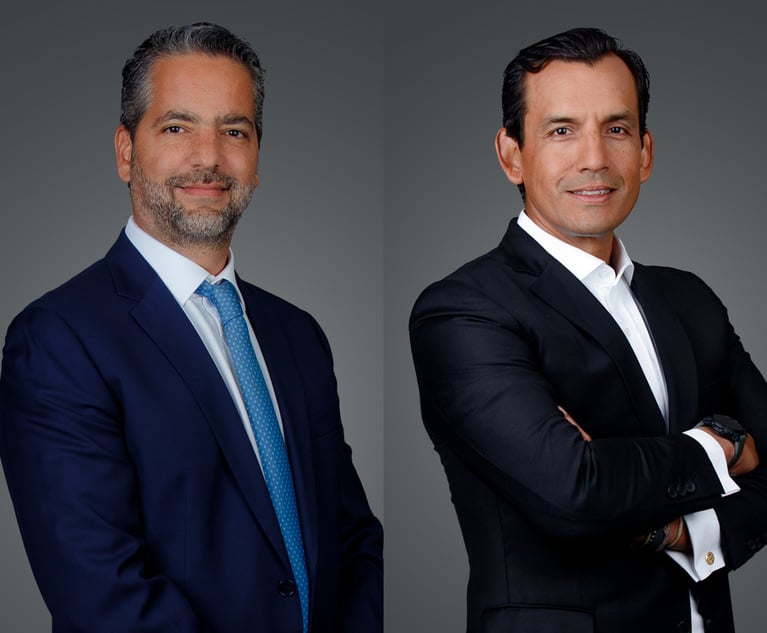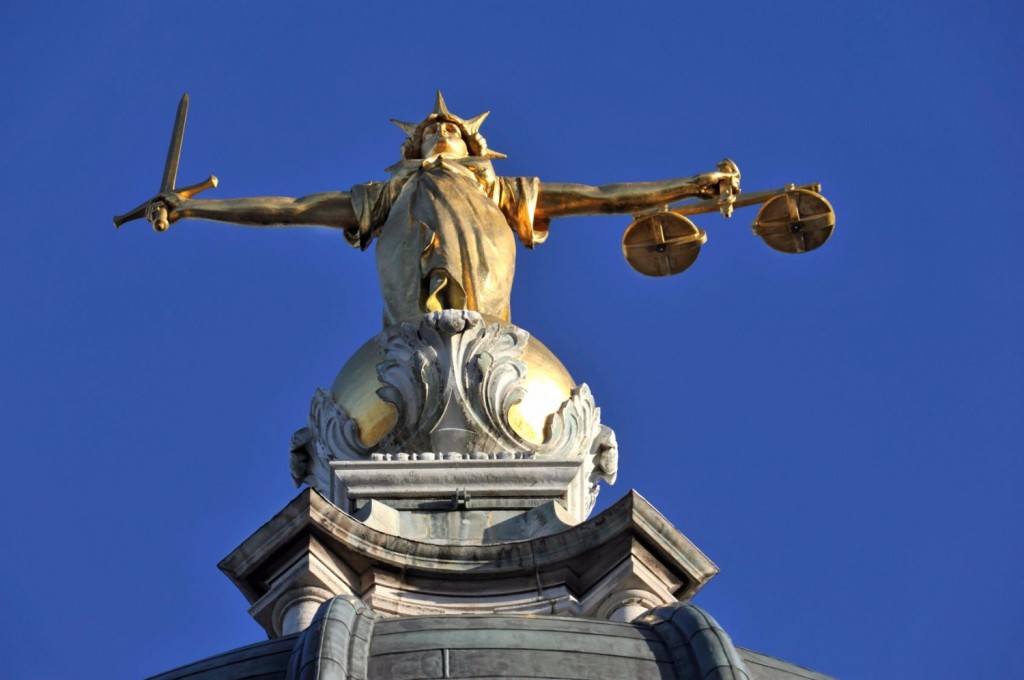Schillings instructed as Sir Philip Green hits back at MP over BHS comments
Green has repeatedly clashed with the head of the work and pensions parliamentary select committee Frank Field.
July 26, 2016 at 06:57 AM
3 minute read
Sir Philip Green has instructed media specialist Schillings to act for him regarding "highly defamatory and completely false" statements made by chair of the Work and Pensions Select Committee, Frank Field.
Following comments made by Field during yesterday's Radio 4 Today programme, Schillings has written to the Labour MP to demand "an immediate apology".
During the programme, Field, who co-led the Parliamentary inquiry into the sale and subsequent collapse of BHS, described Green as "worse than Robert Maxwell" – the disgraced ex-head of the Mirror Group who stole millions from its pension fund.
The letter from Schillings stated: "Our client requires an immediate and fulsome apology in relation to the allegation."
It added: "Clearly an allegation that our client is a thief is likely to cause him serious harm."
It said: "The other remedies to which our client is clearly entitled will very much depend on [the] form and manner of your response."
Green and Field have locked horns in the past few months, during the parliamentary inquiry into the sale and subsequent collapse of BHS, which left the company with a £571m pension deficit.
Field co-led the inquiry, which also pushed several law firms into the spotlight.
Linklaters, Olswang, Nabarro and Eversheds partners all appeared in front of the panel to give evidence.
Following the appearance of partners from Linklaters and Nabarro at a panel session on 23 May, Field spoke to Legal Week and expressed his frustration at what he saw as a lack of detail in the partners' responses to questions.
Field said: "I just think it's too easy to claim privilege. It's just laziness and a cover-up."
Yesterday, Olswang and Linklaters were criticised in the Select Committee's final report into the sale of BHS.
The report found fault with the "cursory nature" of the firms' checks into Dominic Chappell, the bankrupt and director of Retail Acquisitions Limited (RAL), which took over BHS last year prior to its collapse.
The report, released yesterday (25 July), states that firms were there to advise and "not to provide an expensive badge of legitimacy to people who would otherwise be bereft of credibility", which it says is what had happened.
The report adds: "In the case of BHS, it appears that advisory firms either did not consider the reputational risk or demonstrated a remarkable level of 'group-think' in relying solely on each other's presence."
Olswang and Linklaters decline to comment.
This content has been archived. It is available through our partners, LexisNexis® and Bloomberg Law.
To view this content, please continue to their sites.
Not a Lexis Subscriber?
Subscribe Now
Not a Bloomberg Law Subscriber?
Subscribe Now
NOT FOR REPRINT
© 2025 ALM Global, LLC, All Rights Reserved. Request academic re-use from www.copyright.com. All other uses, submit a request to [email protected]. For more information visit Asset & Logo Licensing.
You Might Like
View All

Top Labor Lawyer and Former Germany Managing Partner Leaves A&O Shearman to Found Boutique Firm
3 minute read
DLA Piper Appoints New Co-Managing Partners for Peru Office

Trending Stories
- 1New York-Based Skadden Team Joins White & Case Group in Mexico City for Citigroup Demerger
- 2No Two Wildfires Alike: Lawyers Take Different Legal Strategies in California
- 3Poop-Themed Dog Toy OK as Parody, but Still Tarnished Jack Daniel’s Brand, Court Says
- 4Meet the New President of NY's Association of Trial Court Jurists
- 5Lawyers' Phones Are Ringing: What Should Employers Do If ICE Raids Their Business?
Who Got The Work
J. Brugh Lower of Gibbons has entered an appearance for industrial equipment supplier Devco Corporation in a pending trademark infringement lawsuit. The suit, accusing the defendant of selling knock-off Graco products, was filed Dec. 18 in New Jersey District Court by Rivkin Radler on behalf of Graco Inc. and Graco Minnesota. The case, assigned to U.S. District Judge Zahid N. Quraishi, is 3:24-cv-11294, Graco Inc. et al v. Devco Corporation.
Who Got The Work
Rebecca Maller-Stein and Kent A. Yalowitz of Arnold & Porter Kaye Scholer have entered their appearances for Hanaco Venture Capital and its executives, Lior Prosor and David Frankel, in a pending securities lawsuit. The action, filed on Dec. 24 in New York Southern District Court by Zell, Aron & Co. on behalf of Goldeneye Advisors, accuses the defendants of negligently and fraudulently managing the plaintiff's $1 million investment. The case, assigned to U.S. District Judge Vernon S. Broderick, is 1:24-cv-09918, Goldeneye Advisors, LLC v. Hanaco Venture Capital, Ltd. et al.
Who Got The Work
Attorneys from A&O Shearman has stepped in as defense counsel for Toronto-Dominion Bank and other defendants in a pending securities class action. The suit, filed Dec. 11 in New York Southern District Court by Bleichmar Fonti & Auld, accuses the defendants of concealing the bank's 'pervasive' deficiencies in regards to its compliance with the Bank Secrecy Act and the quality of its anti-money laundering controls. The case, assigned to U.S. District Judge Arun Subramanian, is 1:24-cv-09445, Gonzalez v. The Toronto-Dominion Bank et al.
Who Got The Work
Crown Castle International, a Pennsylvania company providing shared communications infrastructure, has turned to Luke D. Wolf of Gordon Rees Scully Mansukhani to fend off a pending breach-of-contract lawsuit. The court action, filed Nov. 25 in Michigan Eastern District Court by Hooper Hathaway PC on behalf of The Town Residences LLC, accuses Crown Castle of failing to transfer approximately $30,000 in utility payments from T-Mobile in breach of a roof-top lease and assignment agreement. The case, assigned to U.S. District Judge Susan K. Declercq, is 2:24-cv-13131, The Town Residences LLC v. T-Mobile US, Inc. et al.
Who Got The Work
Wilfred P. Coronato and Daniel M. Schwartz of McCarter & English have stepped in as defense counsel to Electrolux Home Products Inc. in a pending product liability lawsuit. The court action, filed Nov. 26 in New York Eastern District Court by Poulos Lopiccolo PC and Nagel Rice LLP on behalf of David Stern, alleges that the defendant's refrigerators’ drawers and shelving repeatedly break and fall apart within months after purchase. The case, assigned to U.S. District Judge Joan M. Azrack, is 2:24-cv-08204, Stern v. Electrolux Home Products, Inc.
Featured Firms
Law Offices of Gary Martin Hays & Associates, P.C.
(470) 294-1674
Law Offices of Mark E. Salomone
(857) 444-6468
Smith & Hassler
(713) 739-1250









